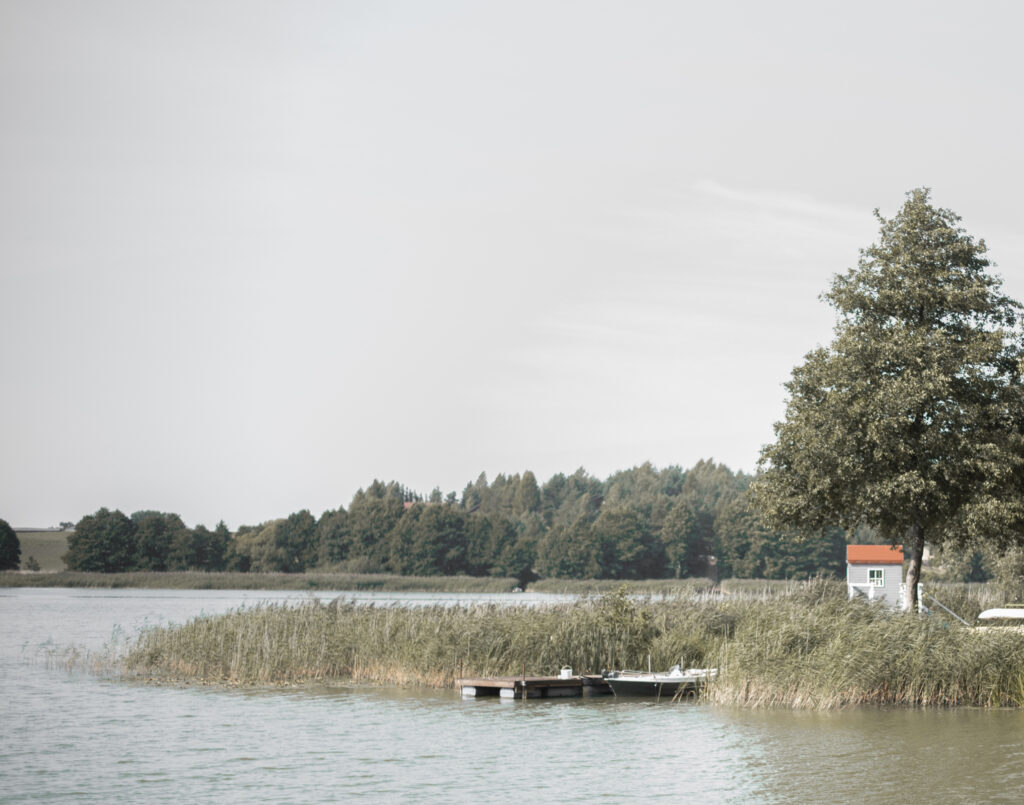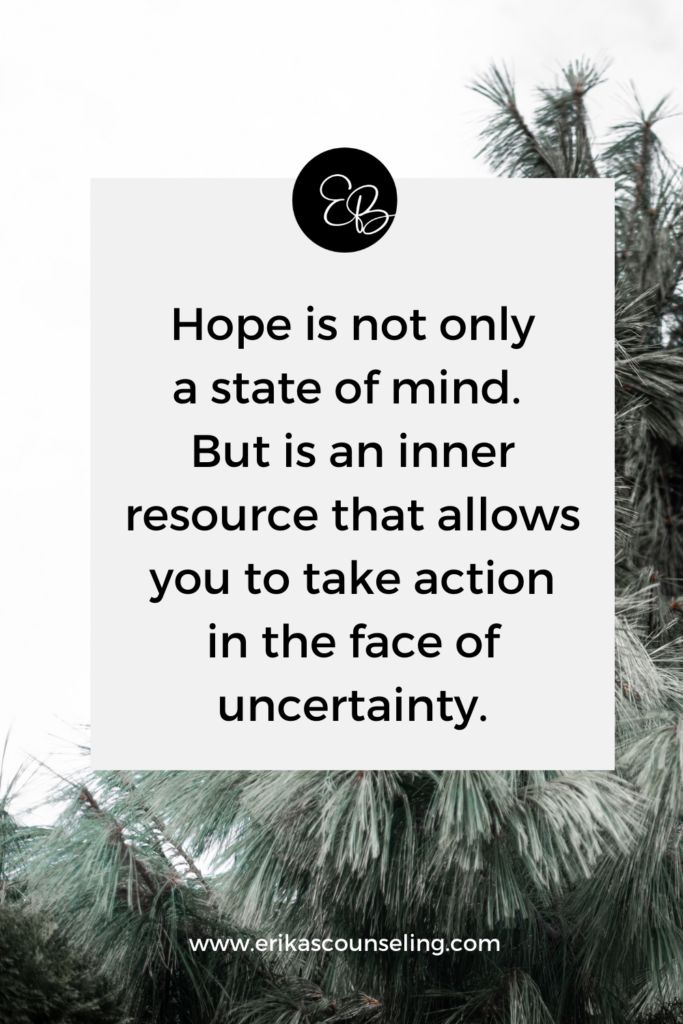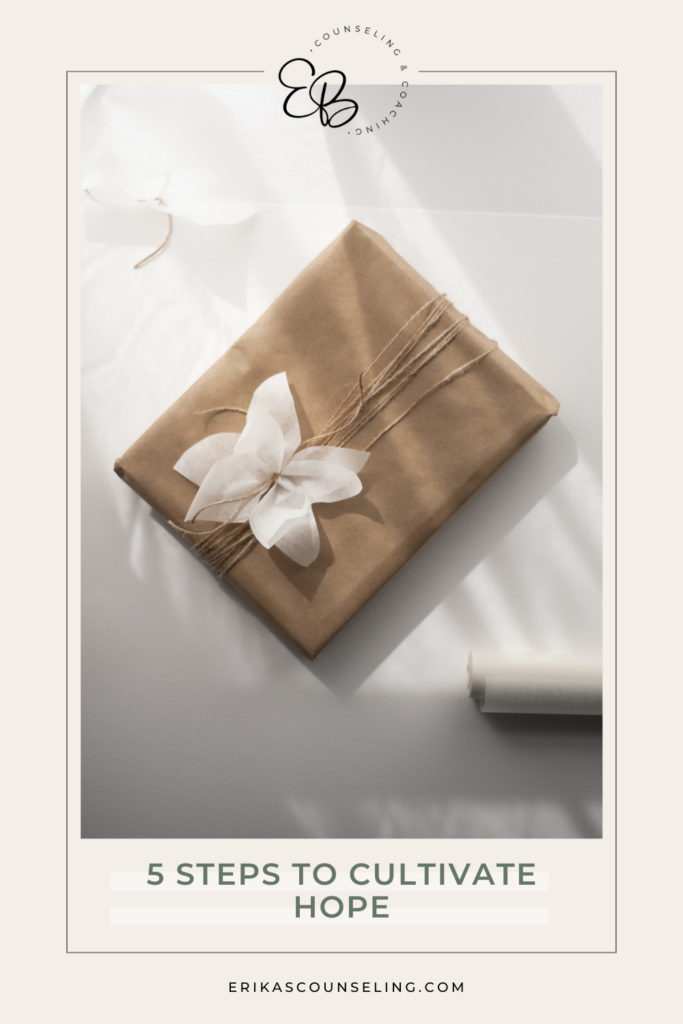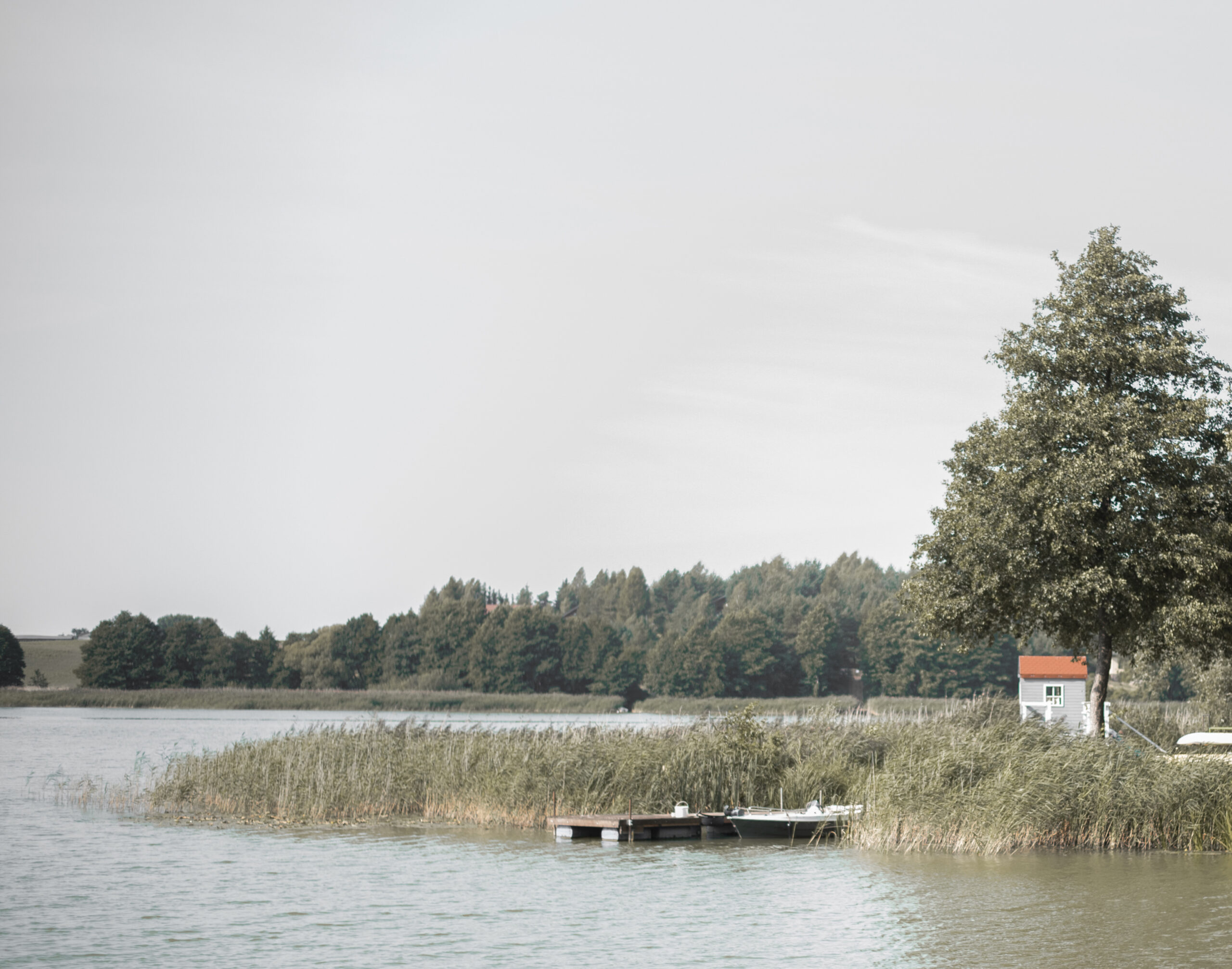The definition of hope is to cherish a desire with anticipation : to want something to happen or be true. (Merrriam-Webster). A sense of trust. The opposite of hope would be hopeless, or perhaps despair. Change, growth and healing are more difficult to come by when in a state of hopelessness. Hope is more than just a state of mind or wishful thinking. Hope can be cultivated and serve as an inner resource during uncertain times.

Hope.
What comes to your mind?
What do you feel?
Where do you feel it?
What do you hope in?
What do you hope for?

Hope has been on my mind. Particularly, as the year is coming to a close. For some the end of the year may be a time of joy and anticipation, while for others it is heavy. It is painful. Hope is what allows you to take the next step. Hope is what helps you tolerate a difficult present, and also propels you forward even when living with an uncertain future. Hope allows for grief and gratitude.
Some may close themselves off to hope due to pain and disappointment. Some may say, “Why hope, only to be let down? Yet, no amount of worry or shutting yourself off to hope, will make the pain sting any less, if your desired outcome is not what you had hoped for.
Hope is not only a state of mind, but is an inner resource that allows you to take action. Hope can be cultivated. Hope can be within your circle of control. If hope is gone how can you find motivation to pursue your goals? How can you carry on when life throws a curve ball? How will you build resiliency? Hope allows you to keep going in the face of adversity. Victor Frankl, Psychiatrist and Holocaust survivor stated, “Everything can be taken from a man but one thing: the last of human freedoms – to choose one’s attitude in any given set of circumstances, to choose one’s own way.”
I believe one can choose hope. That one can find meaning in the mess.
It is easy to talk and write about hope. Is it at times more difficult to live? Yes. But so is living without it.

Five Steps For Cultivating Hope:
1. Nervous System Regulation
The following steps in cultivating hope will also assist in regulating your Nervous System. It is difficult to cultivate hope when living in a sate of chronic stress. Imagine a pot of water that is constantly left on simmer. It is no longer boiling, but constantly using energy just simmering. It never gets turned off. I like to use this analogy towards stress. Many of us are continuously walking around on simmer; having a difficult time turning off our fight or flight response of our sympathetic nervous system. This constant simmer causes physical, emotional and mental distress. Making it difficult to utilize inner resources to mobilize hope. Which, leads us to a shut down or frozen state. When in a shut down state we are at the bottom of our ladder. We may feel lost, stuck, heavy and hopeless. It is difficult to take action. Hope may be a distant memory.
See the following post for more information on Nervous System Regulation:
https://erikascounseling.com/2022/10/20/your-autonomic-nervous-system-explained/.
In cultivating hope it is essential to cultivate a regulated nervous system.
2. Focus on What is Within Your Control
You could spend a lifetime perpetually frustrated about events or situations that are outside of your control. Focus on what is within your circle of control and set goals. Goals are more than wishing. Set specific and actionable steps toward a goal that is within your control. A sense of control and the ability to take action within one’s control builds hope and increased confidence.
3. Find Micro-Moments of Joy
Grief and gratitude can coexist. Even in the midst of pain and difficulty cultivating gratitude serves as a protective factor and increases feelings of well-being. The key is to constantly look for SMALL moments that bring you joy and savor the moment for 10-30 seconds. Searching for micro-moments of joy offsets the brains natural negativity bias, which is too look for what is going wrong. Searching for small moments to be thankful for re-wires pathways in your brain to be more present, engages your physical senses and strengthens your mindfulness muscles.
4. Connect to Something Larger Than Yourself
Believing and connecting in something larger than yourself fosters hope. For some this may be spirituality or connecting to nature. Whatever it personally may be for you, foster this connection. Spend time in nature. Spend time with people who uplift and make you feel good. Find a trusted support person to share your burdens with. Look for someone else to help. Service shifts your focus from replaying your inner worries to that of spreading hope to someone else in need.
5. Spend Time Doing Something You Love
Taking part in activities that truly bring you joy are a necessary part of cultivating hope. Adding in and prioritizing activities that foster happiness assists in regulating your nervous system, thus making hope more accessible. What was something that you loved to do as a child? Do more of that! What was something that your past self really enjoyed, but at some point you convinced yourself that there was no longer time for that? Do that thing! Spend less time on a device, or social media and more time doing what you love and connecting with people that you care for.
Hope allows you to move forward with joy and connection despite living in a world filled with uncertainty.
Here is to the end of a year and looking ahead with hope for a new year. Please remember feelings of hopelessness tend to feelings of despair and isolation. There is help. And there is hope. Please reach out to a safe, trusted support person if in need.
Posts for educational purposes only. Not a replacement for a therapeutic relationship.
